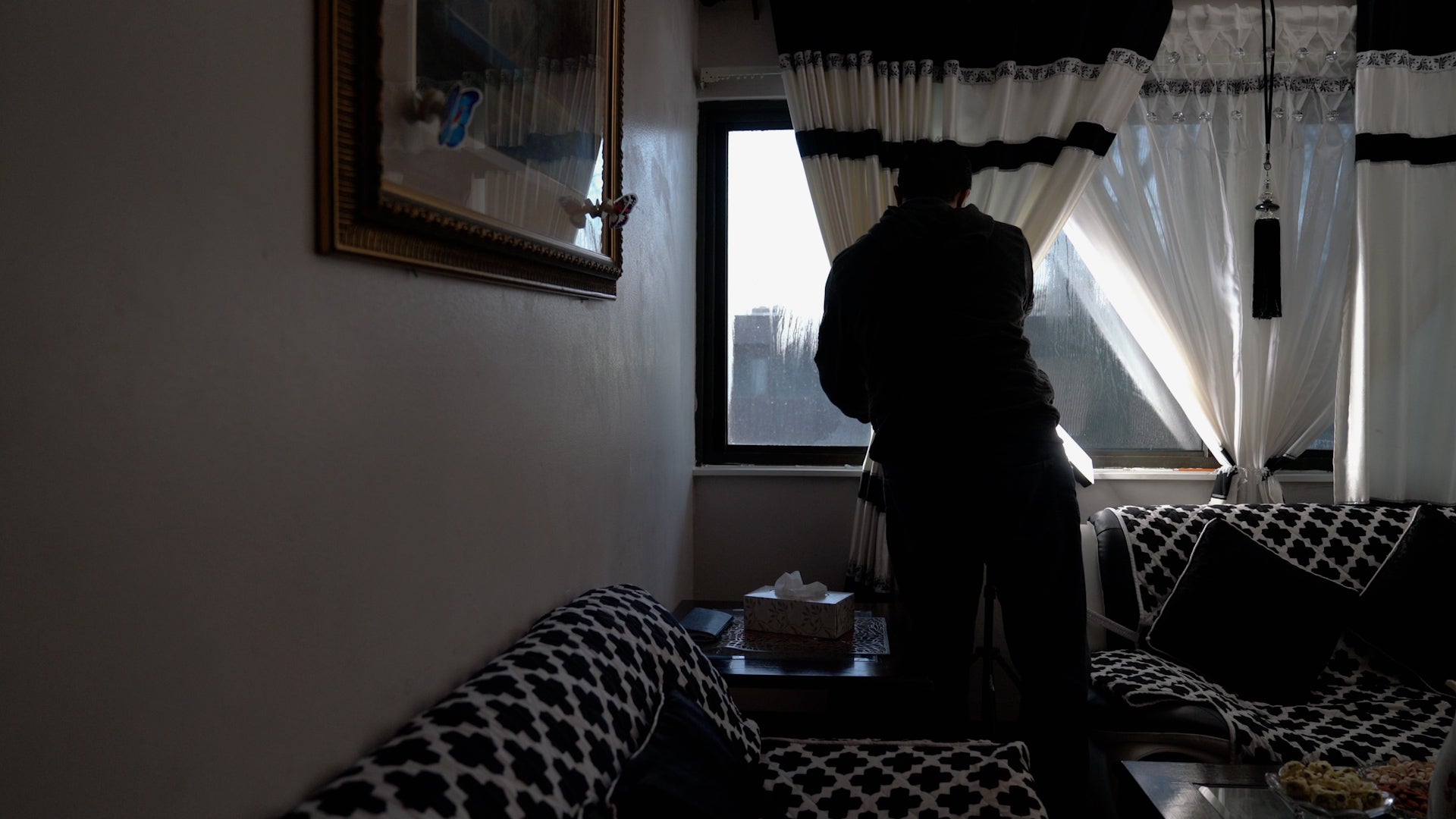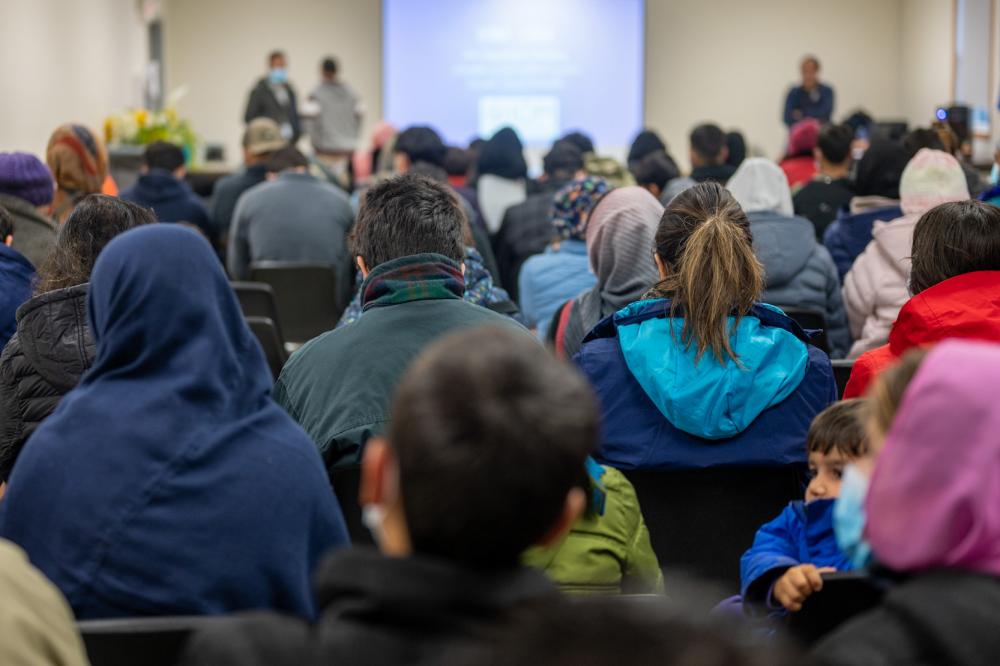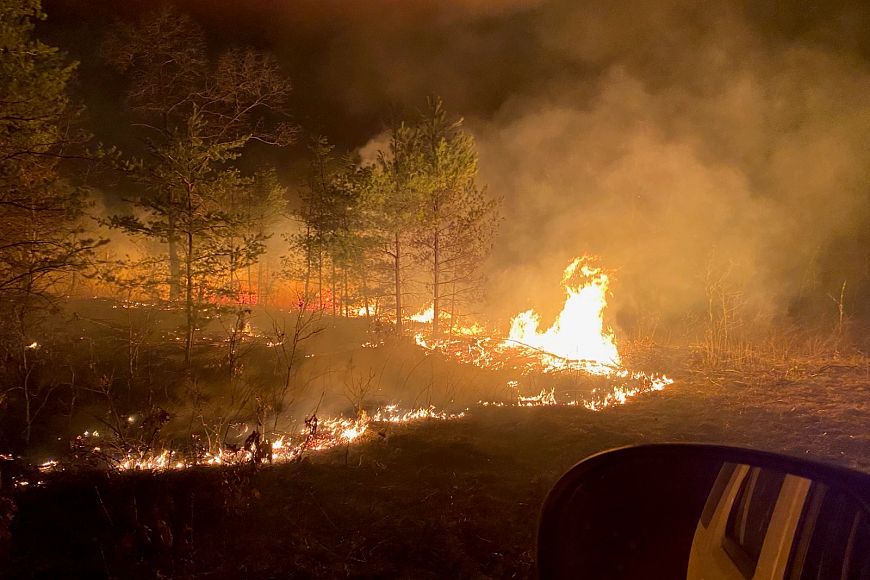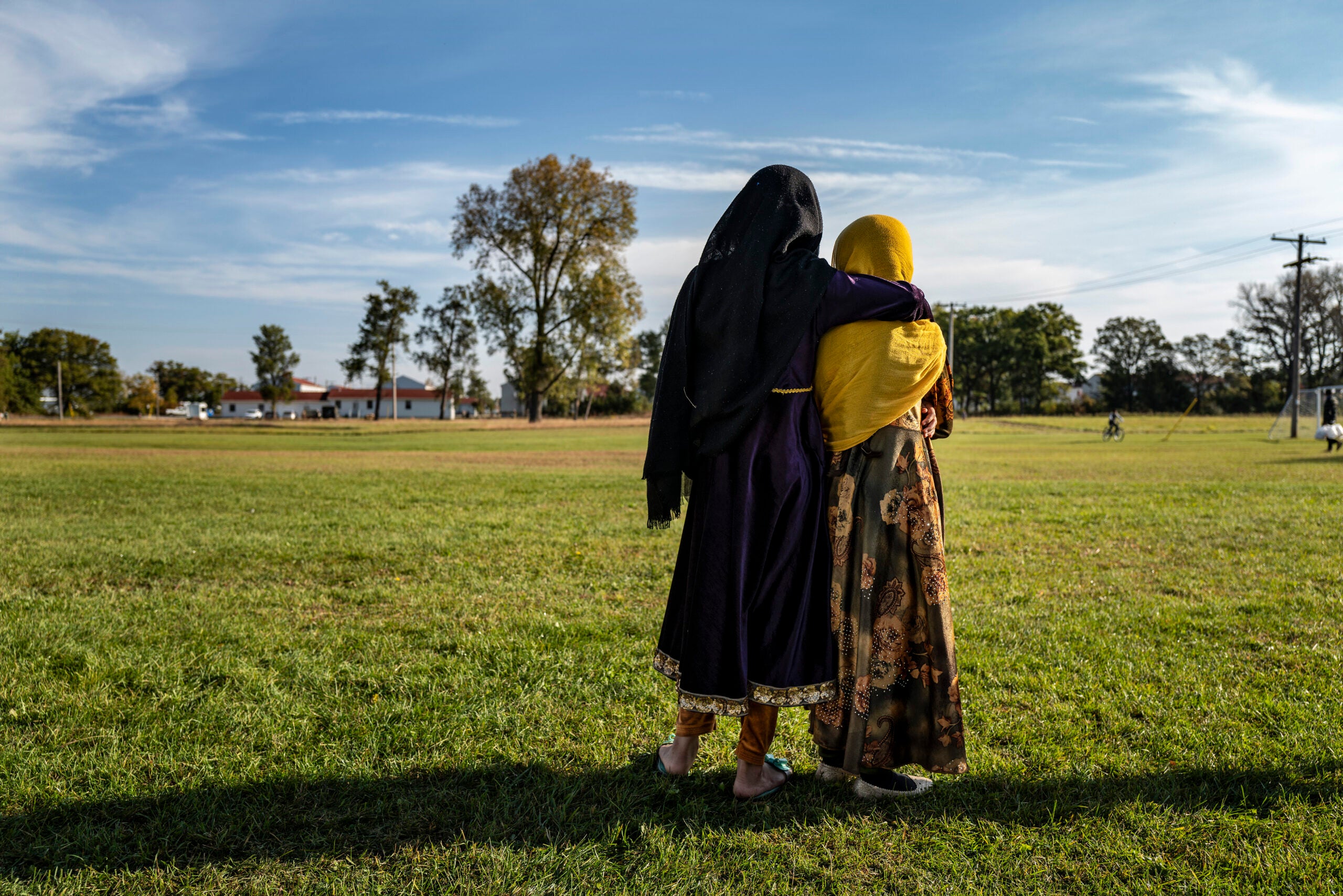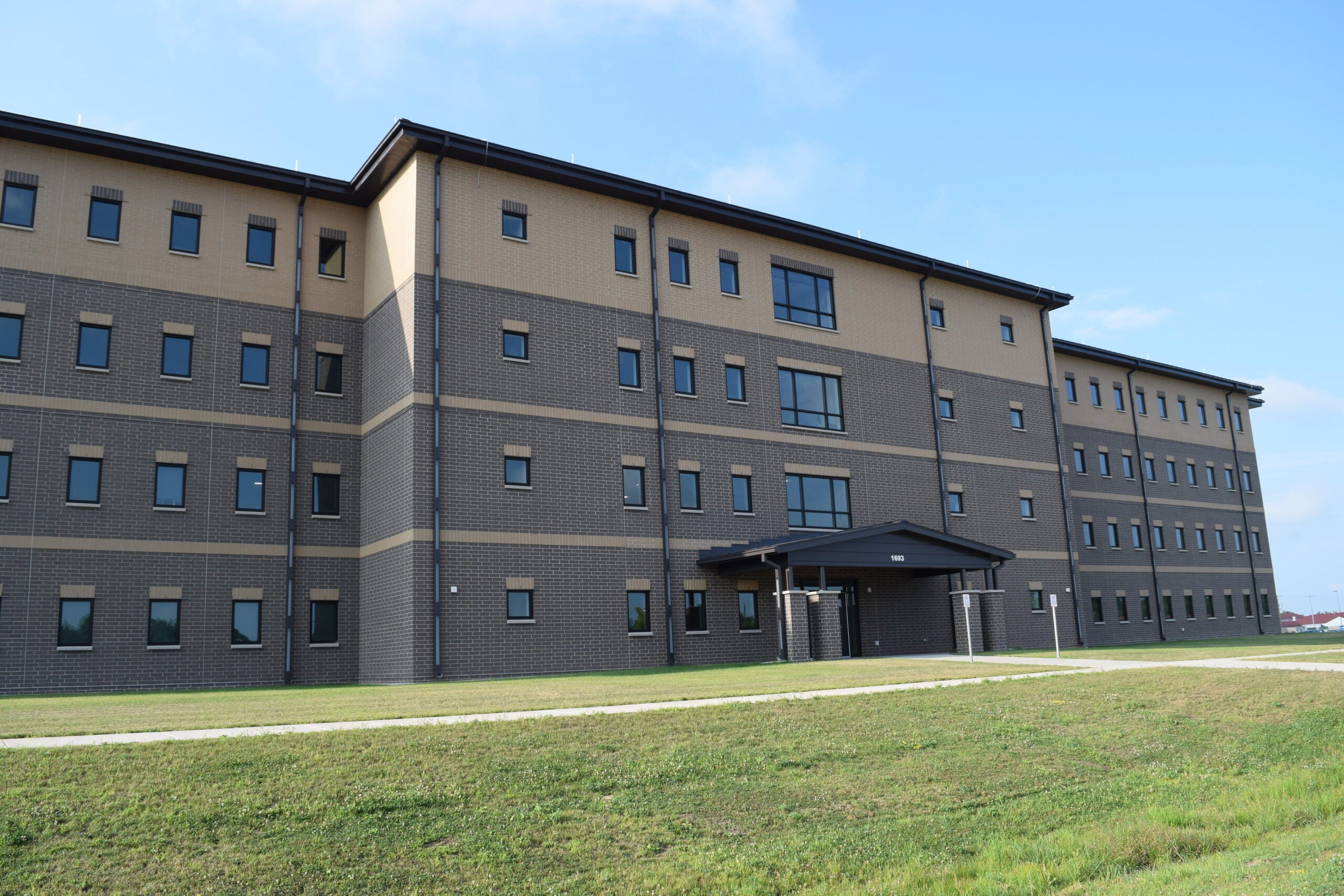With the last Afghans leaving Fort McCoy for resettlement this week, federal officials and local nonprofits are working to wrap up operations that supported up to 15,000 evacuees and staff at the western Wisconsin base.
Fort McCoy is the second to last U.S. military base to finish housing those who were evacuated during the U.S. military’s withdrawal from Afghanistan. The base was one of the first to receive evacuees last August and had the most Afghans housed there as part of what the U.S. government and military call Operation Allies Welcome. At its maximum capacity last fall, the base hosted more than 12,600 evacuees.
Angie Salazar is the federal coordinator for Operation Allies Welcome at Fort McCoy. But at the end of the week, she’ll be returning to her main job as special agent in charge of U.S. Department of Homeland Security investigations in Illinois, Indiana and Wisconsin.
Stay informed on the latest news
Sign up for WPR’s email newsletter.
“The wrap up, it’s not as long as one might think. The military will handle the installation wrap up. But as far as interagency, we were welcomed by Fort McCoy and utilized existing space. So we’re packing up our things, completing some checklists and most of us will head out this weekend,” Salazar said.
She said around 4,000 workers came through Fort McCoy during the almost six-month operation, including a rotation of military service members deployed to the base and around 400 federal agency staff and volunteers from nonprofit organizations.
Salazar said the team recently held a closing ceremony for the operation and celebrated what she described as the collective accomplishments of housing and meeting the humanitarian needs of thousands of people while they went through immigration requirements and waited for resettlement.
“The outpouring of donations and the support from the (local) community was amazing. I mean, we had 13,000 guests who arrived, most of which, just with the clothes on their back. And I can share that the vast majority of them left with clothing, shoes, including bags to travel with,” she said.
She said any leftover donations have already been distributed to local nonprofits for use in the community.
Operations at the base also went through initial problems serving the large number of people and a small outbreak of measles cases among the evacuees.
Looking back on the last six months, Salazar said it’s emotional to think about the role that her staff and Fort McCoy have played in welcoming people who fled their country in the hope of a safer life in America.
“We did town halls in the beginning to let people know what was going on … And even when we were sharing really difficult news, that we’re going to be here for some time, this isn’t going to happen as quickly as we would like, or luggage questions, difficult questions, at the conclusion of those, there was always the (Afghan) guests standing up and thanking us for receiving them, for being here,” Salazar said.
The end of Operation Allies Welcome at Fort McCoy is also a turning point for the nonprofit groups that have provided clothes and other personal items for people while they were at the base.
Karen Becker has led the response from Catholic Charities from the Diocese of La Crosse since last August. In addition to donations, the group provided social and recreational spaces for Afghans living on the base, from women and children’s centers to indoor spaces for sports this winter.
Becker said her group kept the centers open until the last people left the base for resettlement. She said the pace of resettlement picked up speed in recent months and operations on the base ended as quickly as they began.
“It was described to me when we were talking about wrapping up in January that it’s like we go to a cliff, and then we’re done,” Becker said. “I was out there last Thursday, there were still people there and when I went back out on Tuesday, everybody was gone.”
Her group finished packing up their recreational centers this week, and she said leaving the base was bittersweet.
“We developed very strong friendships with our guests and with fellow volunteers,” Becker said. “It was a mission that all of us felt very strongly about and enjoyed doing with each other.”
Benny Benedict is director of emergency disaster services for the Salvation Army of Wisconsin & Upper Michigan. Last September, his organization partnered with national veteran group Team Rubicon to collect and sort donated items from around Wisconsin for the Afghan evacuees.
Benedict said the experience has been humbling.
“They’ve been through such an ordeal even before they got here. Sometimes you put yourself into their shoes and say, ‘How would you feel if all of a sudden you had to leave your home and go halfway across the world to start a new life?’” he said. “It’s been an honor to help these people. I hope it works out, and we do want them to thrive.”
As the number of people started to dwindle at the base in recent months, Benedict said the Salvation Army has shifted their focus to assisting the refugee resettlement organizations in Wisconsin. He said the biggest struggle for groups resettling Afghans in Wisconsin is finding long-term affordable housing.
“We wanted to find a more permanent housing solution for them rather than to say, ‘Hey, you can stay here for a month and then you have to move again.’ We want them to settle,” he said. “It’s kind of like the long term recovery, it’ll take a while. But we don’t want people six months down the road finding out that they’re having extreme difficulties.”
Wisconsin Public Radio, © Copyright 2025, Board of Regents of the University of Wisconsin System and Wisconsin Educational Communications Board.

